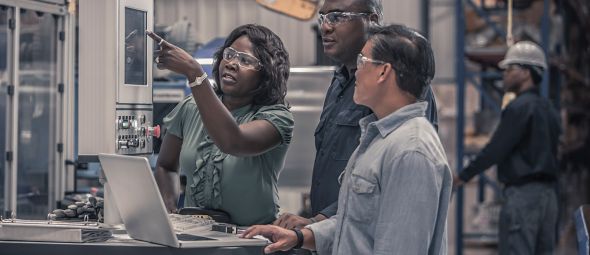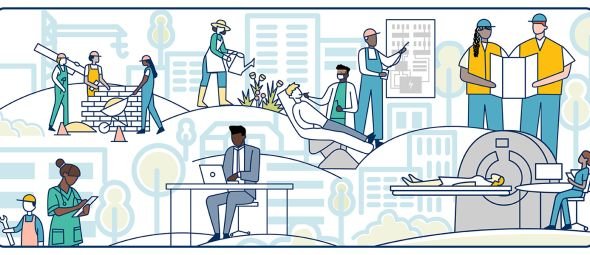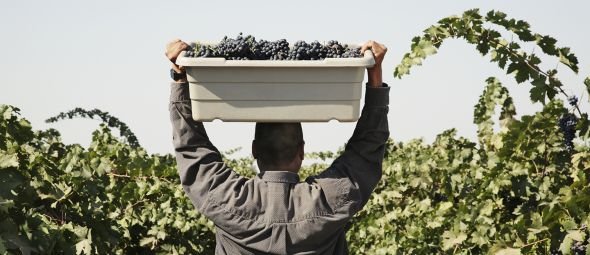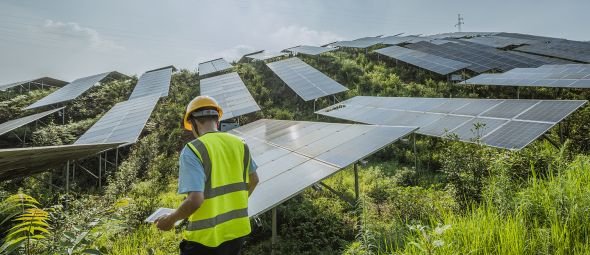Overview
People’s access to opportunity and advancement in the labor market is shaped by macroeconomic forces, technological change, policy choices, and labor market dynamics. Over the past 40 years, these influences have culminated in greater income inequality and less upward economic mobility for US workers. They have also contributed to a growing share of low-wage jobs in the US labor market. WorkRise generates evidence on and elevates our understanding of how macroeconomic, technological change, policy, and labor market dynamics influence economic security and mobility.
Working Knowledge

Economic context
December 04, 2023
Video
WorkRise Shorts: What’s Driving Wage Differences by Gender and Race? with Kate Bahn and Mark Stelzner
Research by Stelzner and WorkRise research director Kate Bahn looks at the persistent wage disparities between similar workers of different races, ethnicities, and genders. The analysis finds a larger wage penalty for women workers who are Latina or Black and highlights how employers’ profit-maximizing strategies can reinforce racism and misogynistic views by creating wage differences and rewarding discriminating firms.
December 04, 2023
Research
Economic context, Support during upskilling
Brief
Last updated on January 14, 2025
Workforce Strategies for New Industrial Policies: Governors’ Emerging Solutions
The report summarizes findings from interviews with 16 governors’ workforce development policy advisers in states that vary in terms of their political leadership, geographies, and populations.
Grantee Research

Economic context
Last updated on July 09, 2024
Expanding Worker Opportunities Through Evidence: WorkRise Impact Report 2023
By bridging knowledge gaps and forging multi-stakeholder partnerships among employers, worker advocates, policymakers, and practitioners, WorkRise is meaningfully improving economic mobility for lower-wage workers. Our 2023 Impact Report shares more about how we lead with rigorous yet actionable research and get it into the hands of the change makers best positioned to act on it.
Last updated on July 09, 2024
Economic context, Economic development
Report
Last updated on May 14, 2024
Aligning Workforce and Economic Development to Benefit Workers
In this report, WorkRise examines what we know about the impacts of the workforce development and economic development fields and their implications for equitable economic outcomes for low-wage workers, especially Black individuals and other people of color who have faced systematic challenges in economic mobility.
WorkRise Research
Economic context, Scheduling, Mental health
Report
November 20, 2023
Quantifying the Costs of Rising Unemployment
Rising unemployment brings significant costs to workers, their families, social outcomes, and the economy at-large. The contemporary tight labor market provides a good opportunity for researchers to better understand the benefits of low unemployment and thus the risks of high unemployment.
WorkRise Research

Economic context, Economic development, Support during upskilling
Infographic
September 12, 2023
Leveraging Federal Funds to Create Quality Jobs
Do you want better jobs for your community? Through new federal dollars, state and local policymakers have a once-in-a-generation chance to build a new and thriving workforce.
WorkRise Research

Economic context, Workers in the South
Executive Summary
March 15, 2023
How Past Criminal Convictions Bar Floridians from Occupational Licensing Opportunities
In this report, the Florida Policy Institute and the DeVoe L. Moore Center at Florida State University highlight research exploring the relationship between occupational licensing and recidivism and the consequences of overregulation on workforce development. The authors also survey the landscape of Florida’s occupational licensing laws and policy reform efforts and present policy proposals to reduce professional licensing barriers for people with criminal records.
Grantee Research
Social determinants of work
Report
March 15, 2022
Implications of Providing Child Care Assistance to Parents In Education and Training
New WorkRise research uses microsimulation to model a hypothetical policy scenario where more parents in education and training were eligible for and received public child care subsidies.
Grantee Research
Social determinants of work
March 15, 2022
Expanding Child Care Subsidies to Parents in Education and Training
A fact sheet summarizes findings from a new WorkRise report that models a hypothetical policy scenario where more parents in education and training were eligible for and received public child care subsidies.
Grantee Research

Employer practices
Brief
October 07, 2020
The Challenge of Slow Wage Growth
Because of sluggish wage growth, middle- and low-wage workers in the United States are today doing little better in real terms than similarly situated workers 40 years ago, exacerbating economic burdens experienced by workers during the current COVID-19 crisis. This brief examines the evidence on wage growth for the typical worker over several decades and concludes that efforts to rebuild the U.S. labor market must include policies to accelerate wage growth.
WorkRise Research
Economic context
Brief
September 28, 2020
Racial Inequality in the Labor Market and Employment Opportunities
This brief explores the persistent inequities and disparities in outcomes experienced by people of color in the U.S. labor market through key data points, delves into root causes based on a review of the evidence, and identifies key gaps in our knowledge of why and how labor market inequality endures.
WorkRise Research


